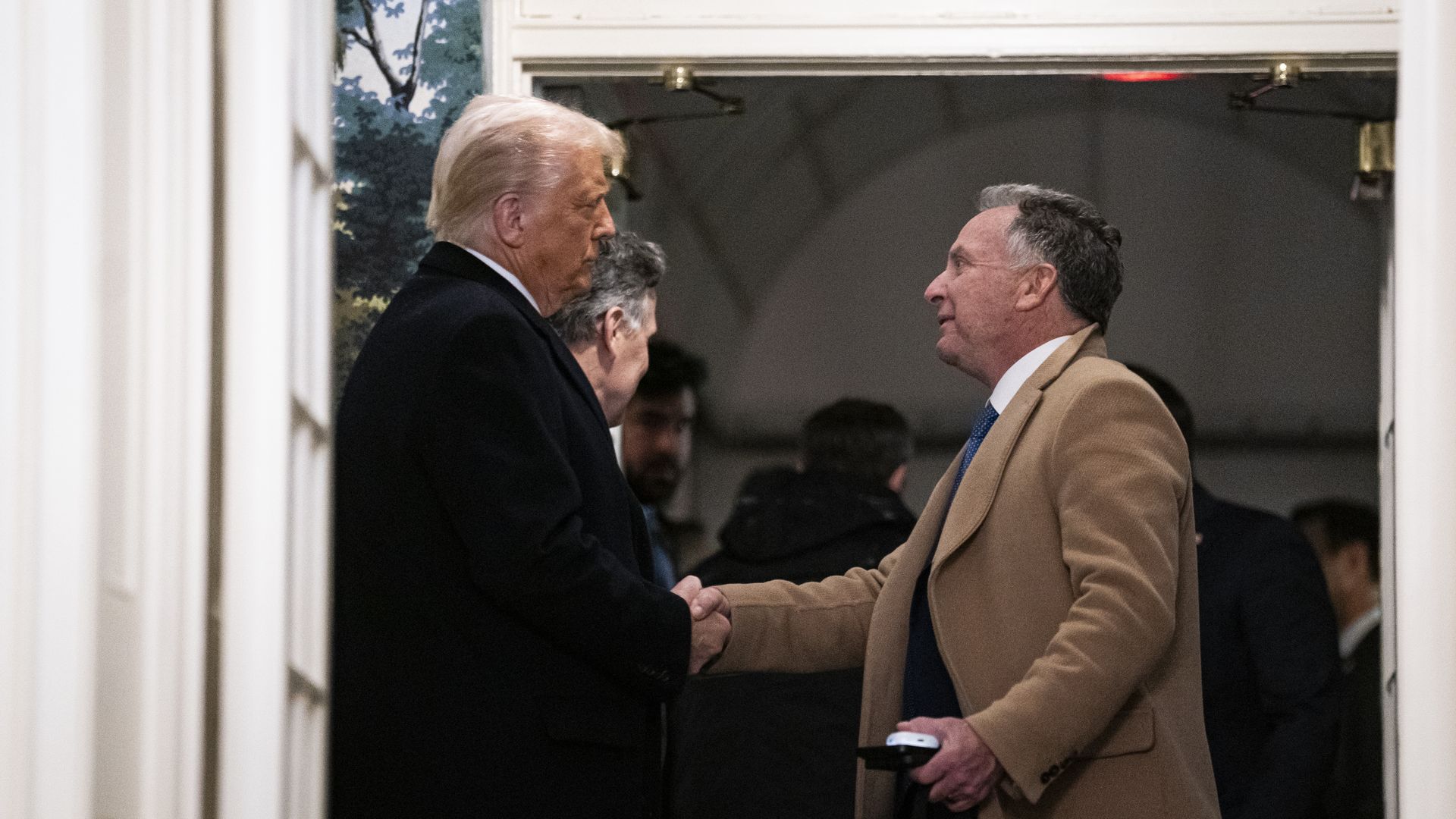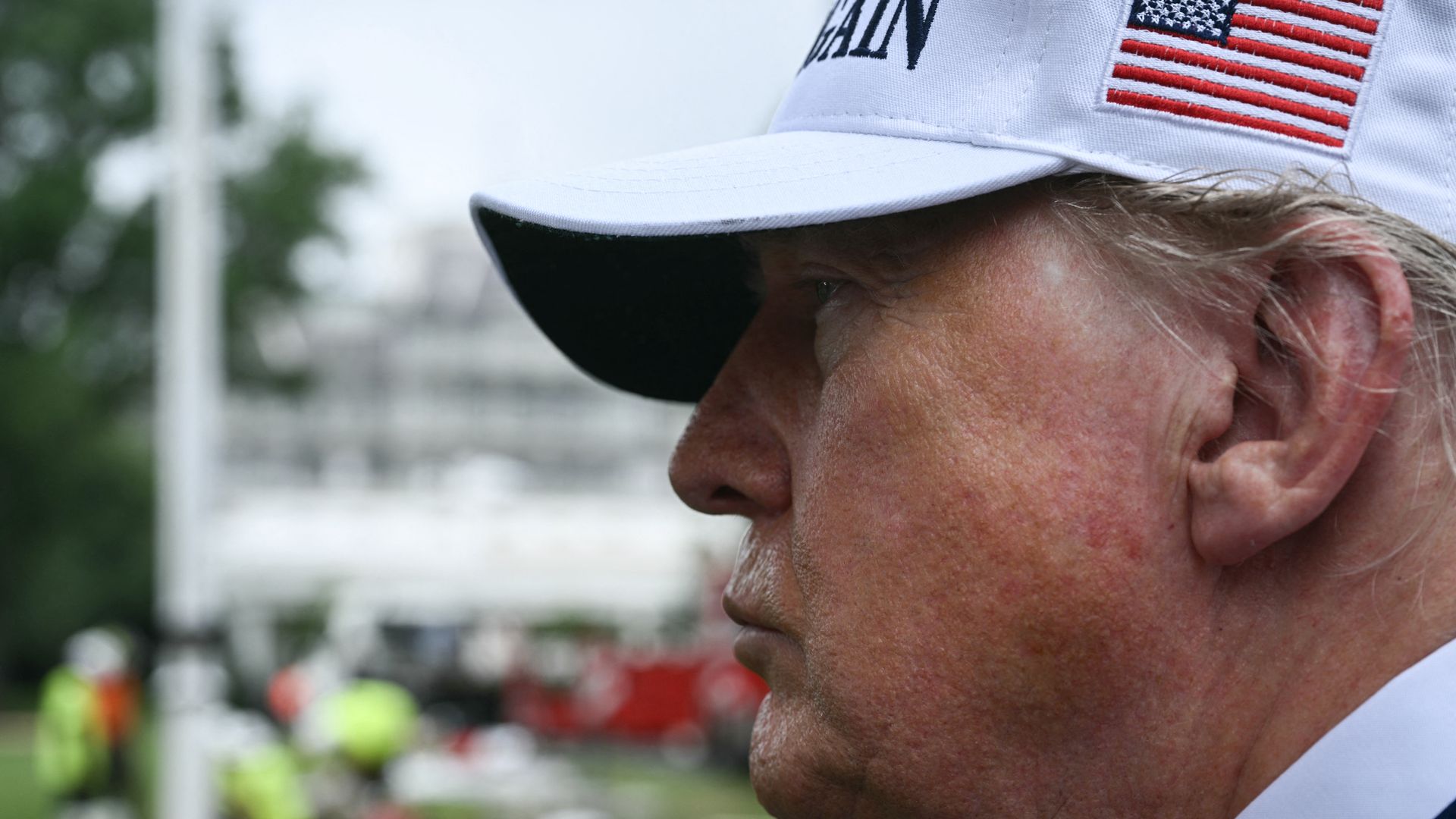The U.S. and Iran will meet next week to discuss a potential nuclear deal, President Trump claimed at a press conference at the end of the NATO summit on Wednesday.
Why it matters: Iran has not publicly confirmed any planned meeting with U.S. officials, which would come just a week after Trump ordered an unprecedented military strike on Iran's nuclear facilities.
- Iran retaliated by launching missiles at a U.S. military base in Qatar on Monday, but signaled it was ready to de-escalate and later agreed to a ceasefire with Israel.
- Trump, whose NATO appearance doubled as a victory lap for the B-2 bombing operation that dealt heavy damage to Iran's nuclear program, has called for Iran to return to the negotiating table.
Driving the news: The last meeting between White House envoy Steve Witkoff and Iran's foreign minister Abbas Araghchi took place more than a month ago.
- U.S. and Israeli officials told Axios that Witkoff and Araghchi were supposed to meet on June 15 in Oman, where Iran was expected to give its official response to the latest U.S. proposal for a nuclear deal.
- An Israeli official said Israel was ready to hold off on attacking Iran until after the results of that meeting became clear.
But on June 12, Israel and the U.S. received intelligence that made clear the Iranians were not going to attend the meeting, U.S. and Israeli officials say.
- "At that moment, we told the U.S. we have no reason to wait and we are launching the attack," the Israeli official said.
- What followed was a 12-day war in which Israel took control of Iran's skies, struck nuclear and military sites, and assassinated top military leadership and nuclear scientists.
- The U.S. then intervened with a major strike on Saturday that Trump has repeatedly claimed "obliterated" Iran's nuclear program.
What they're saying: Trump told reporters the U.S. and Iran "may sign a document," but said he "doesn't feel very strongly about it" because the Iranian nuclear program has been destroyed.
- Trump said the main priority in talks is to secure a commitment that Iran will not obtain a nuclear weapon.
- He also lashed out at the media for reporting on an early U.S. intelligence assessment that suggested Iran's nuclear program has only been set back a few months, not years.
What to watch: Secretary of State Marco Rubio, who is also Trump's national security adviser, said that Iran must negotiate "directly with the United States, not through some third country or fourth country process."
- "Do you want to draw up a little agreement for them to sign?" Trump asked Rubio onstage at the NATO press conference.
- "Because I think we can get them to sign it. I don't think it's necessary," he added, saying Iran will likely be focused on post-war recovery efforts.
- "I don't see them getting back involved in the nuclear business anymore. I think they've had .

Trump with Steve Witkoff at the White House. Photo: Al Drago/Getty Images
The White House is discussing with Iran the possibility of a meeting this week between U.S. envoy Steve Witkoff and Iranian Foreign Minister Abbas Araghchi, according to four sources briefed on the issue.
- The objective would be to discuss a diplomatic initiative involving a nuclear deal and an









